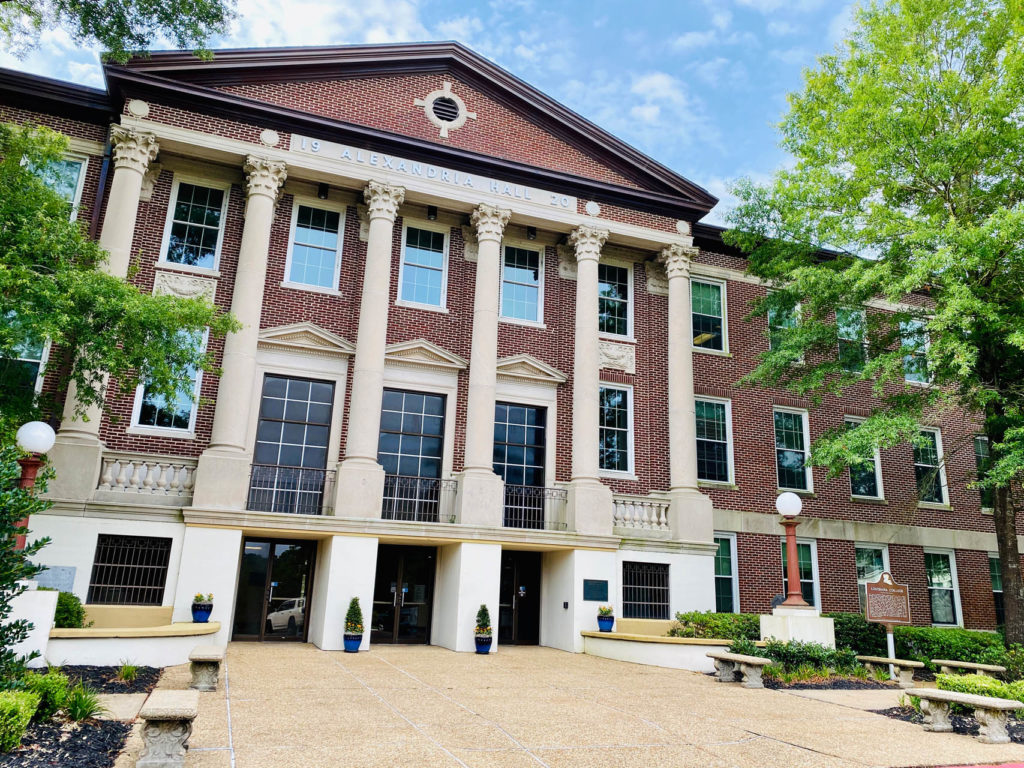Louisiana Christian University Announces Fall Semester Plans

College will reopen to students in August
with safety precautions in place
By Dr. Elizabeth Christian
July 10, 2020
PINEVILLE, La. (LCUNews)– Louisiana Christian University President Dr. Rick Brewer has announced fall semester plans, outlining the overarching measures LCU is executing to mitigate the spread of COVID-19.
“LCU will begin weLCUoming our incoming freshmen Aug. 12, and other students will return the rest of the week,” Brewer said.
Classes will begin Aug. 17.
“We will be following a modified academic calendar to allow for completion of all classes and final exams by Nov. 23,” he said. “This includes eliminating the traditional Labor Day holiday and fall break, but it greatly reduces the risk of exposure to students who travel during those times.”
Since the spring, LCU has had a COVID-response Task Force, chaired by Mark Shoemaker, vice president for IT and Facilities/CIO.
“We have been constantly gathering and reviewing the latest information from state and national governmental and medical organizations, specifically related to ensuring the college is proactive in preparing for the fall semester,” Shoemaker said. “Each division and each building will have extensive procedures for ensuring safety and sanitation.”
Brewer said work has been done in earnest since March to prepare and train faculty and staff in how to offer the best possible experience to our students in a digital format, and this continues.
“While the situation is fluid, we are planning to welcome students back in August,” Brewer said. “Some classes may be moved to completely online as a matter of necessity due to constraints of our facilities. Others may be offered in a hybrid format where sometimes students are in the classroom, and other times online, so that the number of students in the class is reduced at any given time. Other classes will be moved to larger rooms to allow for adequate social distancing.”
In addition to the Task Force recommendations, Brewer and key college officials met Tuesday with Dr. David HoLCUombe, regional administrator and medical director with the Louisiana office of Public Health, on the latest health and safety information regarding COVID-19.
“We want to make sure we take every precaution possible to decrease chances of exposure and illness at LCU,” Brewer said. “We are grateful to Dr. HoLCUombe who took time from his very busy schedule to give us the best information available from the CDC and what they are seeing in Louisiana, as well.”
Brewer said there will definitely be changes on campus for students, faculty and staff, and some may make adjustments, but he is committed to making LCU as safe as possible during this uncertain time.
Prior to returning to campus in August, all students are being encouraged to self-quarantine a minimum of 14 days.
“This is a measure that, to the best of our ability, will allow us to begin the semester at a zero baseline,” Brewer said.
Students who are unable to self-quarantine are asked to go and be tested for COVID-19 and provide test results to the campus nurse Janet Sanders prior to check-in.
“It will really put the emphasis on avoiding close contact in order to avoid massive quarantines,” HoLCUombe said of Brewer’s decision to ask this of students.
Two other major technological initiatives that will be in place for the fall are the use of Spotter and TimelyMD.
“Spotter is one of the initiatives we have put into place to protect our students,” said Provost Dr. Cheryl Clark, who is also vice president of Academic Affairs. “This automated attendance monitoring app will record student attendance in chapel so they no longer will have to congregate and wait in line for chapel attendance credit, and we will also use in the classroom for checking attendance and for other events that require attendance.”
TimelyMD is a service that provides unlimited, 24/7, free, on-demand access to medical advice or immediate therapy. Medical professionals can diagnose common conditions and licensed counselors can offer students a safe space to talk about anything at any time. All health counselors are professionally trained, with some specializing in faith-based counseling.
“We will encourage students to utilize health services when they feel ill or are concerned about things,” Brewer said, noting that the stress of the world events, like COVID-19, means students often need counseling or prayer to get through the day. “It’s a huge benefit of a being in a collegiate community of believers.”
Additionally, fall semester procedures will include the following:
Campus-wide:
- More sanitizing stations and disinfecting wipe dispensers are being installed around campus.
- Masks will be mandatory when inside buildings, except when specific exempt activities are being performed.
- One mask will be given to each student. Floor decals and signage will be displayed to reflect traffic patterns and promote social distance awareness.
- Facilities staff will continue with enhanced cleaning and sanitizing of all buildings.
Classroom:
- Each course will be assessed and modified as needed to minimize risk for students and faculty. Approaches will include:
- mandatory face-coverings
- reduced room capacity or relocating classes to a larger venue to allow for social distancing
- remote-learning options in place for each course to allow students and faculty to quarantine or self-isolate as needed
Housing:
- Move-in day and residence hall assignments will be modified to minimize exposure of residential students and families as they move into the residence halls.
- Designated traffic flow patterns will be indicated for residence halls along with more sanitizing stations at access points.
- Students will be required to wear face covering when in common areas. Social distancing in these spaces will be encouraged by removing and rearranging furniture as need.
- Training and signage will be used to regularly remind students about the risks and symptoms of COVID-19.
- Students are responsible to provide their own thermometers to check temperatures daily. Any temperature of 100.4 or greater should be reported immediately to campus nurse.
- A dedicated space will be reserved for those that need to quarantine or self-isolate on campus, but students will be strongly encouraged to go home during quarantine.
Dining:
- Style of food offerings will be modified to protect staff and guests and limit the number of high-contact items.
- Both “to-go” and “dine-in” options will be available with separate flow and exits for guests using each option.
- The dining area will be open with a reduced capacity. Increased numbers of outdoor dining options will be placed close to the dining area to encourage outdoor seating when weather allows.
Athletics:
- All athletic programs are implementing enhanced procedures to screen all athletes using physical assessment, temperature screening, and a COVID-19-specific questionnaire.
- Designated workout schedules will be set for each athlete/program to ensure reduced capacity and social distancing.
- Enhanced hygiene and sanitizing procedures have been implemented in for facilities and equipment before and after each training session or workout.
- Coaches must wear face coverings for any indoor sessions. Athletes will be encouraged to wear face-covering when it is feasible and social distancing is difficult.
- High contact surfaces and shared items will be reduced when possible. Athletes will bring their own towels and water bottles/jugs with a no sharing policy in place.
“We are continuing to address any and all concerns that arise due to COVID,” Brewer said.
For now, Brewer wants to assure students and parents, as well as the entire LCU community, that he and his team are closely monitoring the latest information that becomes available and will follow state health guidelines.
Additional health support staff has been hired to assist the campus nurse to keep and report virus-related cases, he said. Students who exhibit symptoms of COVID-19 will be referred to the nurse, who will address their needs and advise them on how and where testing is offered. Once a positive case is confirmed, students with a likelihood of exposure to that student will be notified and given appropriate course of action required.
